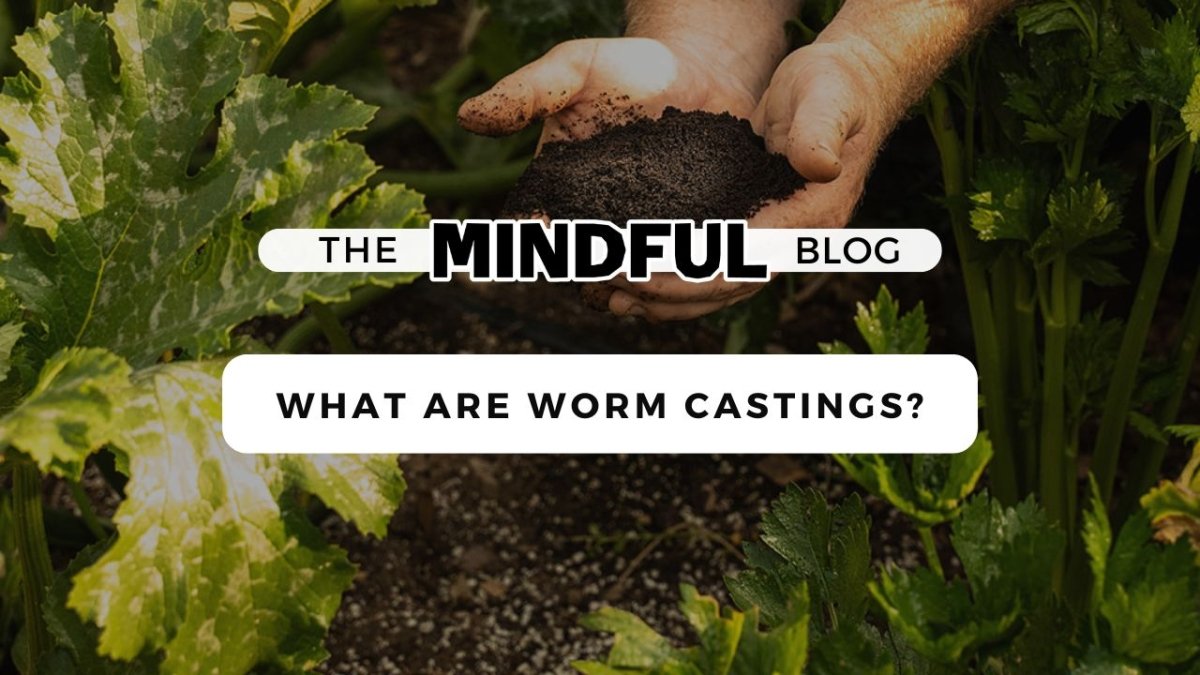
Vermicomposting, worm farms, and worm castings are popular phrases right now, but what are they really? Keep reading if you are interested in learning about this "organic gold" (Adhikary, 2012).
What are Worm Castings?
Worm castings or vermicompost, is essentially manure that is created from composting worms. The worms take food scraps and transform these scraps into
“a rich organic soil amendment” (Carr, 2016). These castings are full of microorganisms that can make micronutrients and trace minerals available to your plants.
What are the Benefits of Worm Castings?
The benefits of worm castings are vast. Studies have shown that “vermicompost-treated soil has better aeration, porosity, bulk density and water retention” (Lim, 2014).
In addition, worm castings also:
- help to repel harmful pathogens and pests found in soil
- stimulate a plant’s natural immune system
- aid in plant development
- improve soil structure
- promote higher yields and stronger root systems
Why Should I Use Worm Castings?
Worm castings provide both beneficial microbes and nutrients to your plants; the combination of these two things are “essential for growing healthy and productive plants” (Adhikary, 2012).
What Can I Use Worm Castings For?
Not only is vermicompost very beneficial to your plants, it is also versatile. Worm castings can be used in these ways:
- incorporating into garden beds and containers before planting
- top dressing for already established plants
- as a portion of a seed starting mix
- compost tea
What Is Compost Tea?
Compost tea or worm tea is the result of soaking or steeping worm castings in water. Compost tea can help “suppress plant diseases and increase soil microbial diversity” while also making nutrients more available (Gomez-Brandon, 2015).
How Do I Make Worm Tea?
- Add one-part worm castings to five parts water in a five-gallon bucket.
- Put an aerator in bottom to help increase microbial life
- Let sit for 24 hours
- Strain tea from castings
- Use tea to spray on plants
- Leftover “sludge” can be poured around larger plants such as fruit trees
As you can see, worm castings are an incredible contribution to any garden!
Ready to boost your soil through the power of worm castings? Grab some here!
References
Adhikary, S. (2012). Vermicompost, the story of Organic Gold: A Review. Agricultural
Sciences, 03(07), 905–917. https://doi.org/10.4236/as.2012.37110
Carr, R., says:, T. S., & says:, P. M. (2019, November 1). Vermicomposting for
Beginners. Rodale Institute. https://rodaleinstitute.org/science/articles/
vermicomposting-for-beginners/
Gomez-Brandon, M., Vela, M. A. R. Í. A., Martínez-Toledo, M. V., Insam, H., &
Dominguez, J. (2015). Effects of compost and vermicompost teas as organic
fertilizers.
Lim, S. L., Wu, T. Y., Lim, P. N., & Shak, K. P. (2014). The use of vermicompost
in organic farming: Overview, effects on soil and economics. Journal of the
Science of Food and Agriculture, 95(6), 1143–1156.
https://doi.org/10.1002/jsfa.6849
